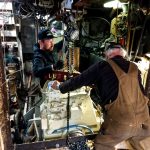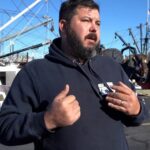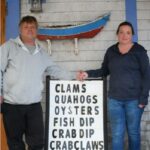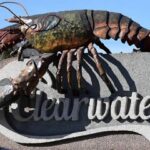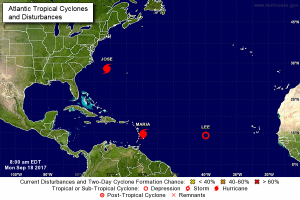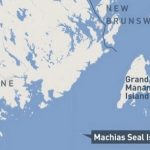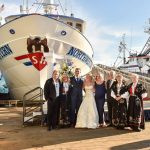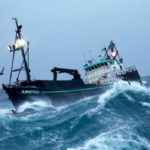Daily Archives: April 20, 2016
Staging A Storm Scene! ‘Deadliest Catch’ Writer Caught In Blatant Fakery Scheme!
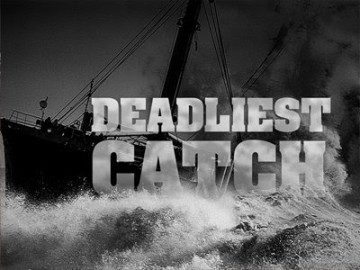 Of course the Kardashians have shamelessly staged scenes for their “reality” show — The Hollywood Reporter accused the gritty Discovery channel hit, featuring seasoned fishermen including Sig Hansen and Josh Harris, of faking a terrible storm in the 4th season premier. On the 2008 episode, “mammoth waves smashed an Alaskan crab fishing boat called the Wizard, sending large swells crashing over its deck,” writer James Hibberd wrote. “Inside, alarmed crew members discover that their stateroom is flooding with incoming seawater.” Adding even more fuel to the fire, the site even discovered an alleged “outline” from the episode. Read the story here 21:18
Of course the Kardashians have shamelessly staged scenes for their “reality” show — The Hollywood Reporter accused the gritty Discovery channel hit, featuring seasoned fishermen including Sig Hansen and Josh Harris, of faking a terrible storm in the 4th season premier. On the 2008 episode, “mammoth waves smashed an Alaskan crab fishing boat called the Wizard, sending large swells crashing over its deck,” writer James Hibberd wrote. “Inside, alarmed crew members discover that their stateroom is flooding with incoming seawater.” Adding even more fuel to the fire, the site even discovered an alleged “outline” from the episode. Read the story here 21:18
‘We haven’t recovered,’ Coast fishermen say on 6th anniversary of BP oil spill
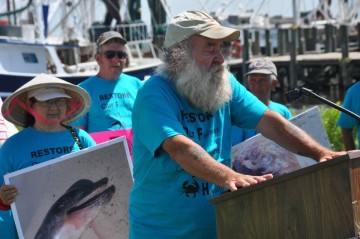 Members of the Coast fishing industry gathered Wednesday at Sherman Caan Back Bay Fishing Dock in East Biloxi to commemorate the sixth anniversary of the BP oil spill. Those in attendance were a mixture of fishermen, oystermen and members of the Vietnamese fishing community. The commemoration was organized by fishing activist Thao Vu of the Mississippi Coalition for Vietnamese Fisher Folks and Families. About 15 people attended the ceremony, carrying protest signs to show their continued frustration with the oil company. “East Biloxi used to be the fresh seafood capitol of the world,” Vu said with Biloxi Bay as her backdrop. “But look at it since the BP oil spill six years ago.” Read the rest here 19:26
Members of the Coast fishing industry gathered Wednesday at Sherman Caan Back Bay Fishing Dock in East Biloxi to commemorate the sixth anniversary of the BP oil spill. Those in attendance were a mixture of fishermen, oystermen and members of the Vietnamese fishing community. The commemoration was organized by fishing activist Thao Vu of the Mississippi Coalition for Vietnamese Fisher Folks and Families. About 15 people attended the ceremony, carrying protest signs to show their continued frustration with the oil company. “East Biloxi used to be the fresh seafood capitol of the world,” Vu said with Biloxi Bay as her backdrop. “But look at it since the BP oil spill six years ago.” Read the rest here 19:26
Is America’s First Offshore Wind Farm A Real Revolution Or Just Another Green Boondoggle?
 Manna From Heaven: How D.E. Shaw and a politically connected attorney persuaded Rhode Island to build America’s first-ever offshore wind farm–and a risk-free money machine. So how did they pull this off? Connections. A decade ago Grybowski was chief of staff to then Governor Don Carcieri, who pushed the Rhode Island General Assembly to back offshore wind as a way of diversifying the tiny state’s power supply. Grybowski, an attorney, left Carcieri and went into private practice in 2007. Two years later the state passed a bill to support offshore wind. The state took it upon itself to study wind speeds, talk to fishermen and boaters, and contemplate the effect that pile-driving would have on migrating whales. It was the state that chose the Block Island site and, to use Grybowski’s word, “deconflicted” the project. Read the rest here 17:25
Manna From Heaven: How D.E. Shaw and a politically connected attorney persuaded Rhode Island to build America’s first-ever offshore wind farm–and a risk-free money machine. So how did they pull this off? Connections. A decade ago Grybowski was chief of staff to then Governor Don Carcieri, who pushed the Rhode Island General Assembly to back offshore wind as a way of diversifying the tiny state’s power supply. Grybowski, an attorney, left Carcieri and went into private practice in 2007. Two years later the state passed a bill to support offshore wind. The state took it upon itself to study wind speeds, talk to fishermen and boaters, and contemplate the effect that pile-driving would have on migrating whales. It was the state that chose the Block Island site and, to use Grybowski’s word, “deconflicted” the project. Read the rest here 17:25
Safety Training for Commercial Fishermen in Montauk – 4/27/2016
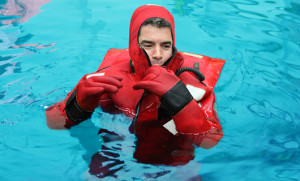 Commercial fishermen can take advantage of free safety training programs that will be offered next week at the Montauk Coast Guard Station. , a Massachusetts organization that supports the health and well-being of fishing families, will present a safety and survival training program on Wednesday from 7:30 a.m. to 3:30 p.m. at the Coast Guard station on Star Island Road. On-board firefighting, man-overboard procedures, flooding and pump operations, flares and emergency positioning devices, survival suits, life raft equipment, helicopter hoist and rescue procedures, and first aid will be covered during the program. Read the rest here 16:22
Commercial fishermen can take advantage of free safety training programs that will be offered next week at the Montauk Coast Guard Station. , a Massachusetts organization that supports the health and well-being of fishing families, will present a safety and survival training program on Wednesday from 7:30 a.m. to 3:30 p.m. at the Coast Guard station on Star Island Road. On-board firefighting, man-overboard procedures, flooding and pump operations, flares and emergency positioning devices, survival suits, life raft equipment, helicopter hoist and rescue procedures, and first aid will be covered during the program. Read the rest here 16:22
Moratorium on oil and gas activities on Canadian portion of Georges Bank in affect
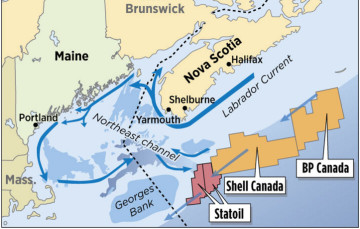 The sustainability and health of one of North America’s most valuable marine ecosystems will be better protected thanks to ongoing collaboration between the governments of Canada and Nova Scotia. The Honourable Jim Carr, Canada’s Minister of Natural Resources, and his provincial counterpart, the Honourable Michel Samson, Minister of Energy for Nova Scotia, have enacted a statutory moratorium on oil and gas activities in the of Georges Bank. The moratorium took effect April 15. Georges Bank, a large submarine bank at the edge of the Atlantic continental shelf between Cape Cod and Nova Scotia, provides habitat for a wide range of marine fish, mammals and corals. As one of the world’s most productive fishing grounds, Georges Bank also supports important commercial fisheries. Read the rest here 15:53
The sustainability and health of one of North America’s most valuable marine ecosystems will be better protected thanks to ongoing collaboration between the governments of Canada and Nova Scotia. The Honourable Jim Carr, Canada’s Minister of Natural Resources, and his provincial counterpart, the Honourable Michel Samson, Minister of Energy for Nova Scotia, have enacted a statutory moratorium on oil and gas activities in the of Georges Bank. The moratorium took effect April 15. Georges Bank, a large submarine bank at the edge of the Atlantic continental shelf between Cape Cod and Nova Scotia, provides habitat for a wide range of marine fish, mammals and corals. As one of the world’s most productive fishing grounds, Georges Bank also supports important commercial fisheries. Read the rest here 15:53
Congressional bills aim to kill Biscayne National Park’s protected no-fishing zone
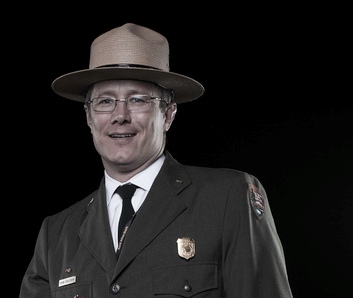 A planned no-fishing zone in Biscayne National Park could be undone by Congress. U.S. Sen. Marco Rubio (R-Fla.) Sen. Bill Cassidy (R-La.) this week filed a Senate bill called the Preserving Public Access to Public Waters Act that puts the 16-square-mile Biscayne marine reserve in its crosshairs. Sport and commercial fishing organizations, including the CCA and the Florida Keys Commercial Fishermen’s Association, protested the reserve as excessive and endorsed the congressional bills intended to remove it. The Florida Fish and Wildlife Conservation Commission objected to closing a reef-fishing area accessible to the large South Florida boating community. Read the rest here 14:36
A planned no-fishing zone in Biscayne National Park could be undone by Congress. U.S. Sen. Marco Rubio (R-Fla.) Sen. Bill Cassidy (R-La.) this week filed a Senate bill called the Preserving Public Access to Public Waters Act that puts the 16-square-mile Biscayne marine reserve in its crosshairs. Sport and commercial fishing organizations, including the CCA and the Florida Keys Commercial Fishermen’s Association, protested the reserve as excessive and endorsed the congressional bills intended to remove it. The Florida Fish and Wildlife Conservation Commission objected to closing a reef-fishing area accessible to the large South Florida boating community. Read the rest here 14:36
Charleston’s maritime history – The mosquito fleet
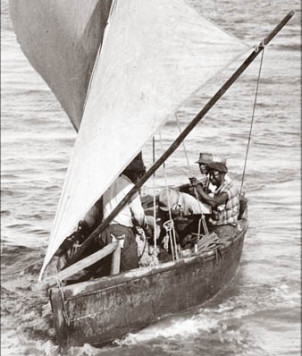 They were among the best watermen in Charleston’s maritime history, their small boats a familiar and beloved sight as they sailed out each morning and returned each afternoon with their catch. From the 1860s until the 1950s, the several hundred African American fishermen who worked the sailing boats of the mosquito fleet formed the core of Charleston’s seafood industry. They fished the creeks, rivers, harbor, and, weather permitting, the offshore banks. They would often go as far out as 30 miles to catch porgy, bass, whiting and, if lucky, a “jack fish.” “One by one they shoved off, and lay in the stream while they adjusted their spritsails and rigged their full jibs abeam, like spinnakers, for the free run to the sea,” wrote Dubose Heyward, describing Charleston’s mosquito fleet in his celebrated novel, Porgy. Read the rest here 13:58
They were among the best watermen in Charleston’s maritime history, their small boats a familiar and beloved sight as they sailed out each morning and returned each afternoon with their catch. From the 1860s until the 1950s, the several hundred African American fishermen who worked the sailing boats of the mosquito fleet formed the core of Charleston’s seafood industry. They fished the creeks, rivers, harbor, and, weather permitting, the offshore banks. They would often go as far out as 30 miles to catch porgy, bass, whiting and, if lucky, a “jack fish.” “One by one they shoved off, and lay in the stream while they adjusted their spritsails and rigged their full jibs abeam, like spinnakers, for the free run to the sea,” wrote Dubose Heyward, describing Charleston’s mosquito fleet in his celebrated novel, Porgy. Read the rest here 13:58
Athearn Marine Agency Boat of the Week: 43′ Fiberglass Novi Scalloper, 320HP, 6 Cylinder Isuzu
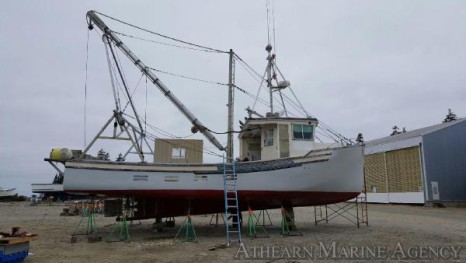 Specifications, information and 30 photo click here To see all the boats in this series, Click here 12:34
Specifications, information and 30 photo click here To see all the boats in this series, Click here 12:34
Impasse between fishery and tribal leaders puts Puget Sound salmon season in jeopardy
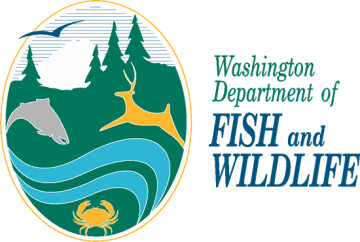 State fishery managers announced late Tuesday they had reached an impasse with tribal leaders over a salmon season this summer. It will now be in the hands of the federal government to make the final decision that will affect the livelihoods thousands of people connected to the salmon fishery. Officials with the Washington Department of Fish and Wildlife are uncertain if a permit will be issued in time to hold recreational and non-tribal commercial fisheries in Puget sound. “This isn’t the outcome we had hoped for, but we will do our best to obtain a federal permit as quickly as possible,” said Ron Warren, head of WDFW’s Fish Program said in a statement Read the rest here 11:56
State fishery managers announced late Tuesday they had reached an impasse with tribal leaders over a salmon season this summer. It will now be in the hands of the federal government to make the final decision that will affect the livelihoods thousands of people connected to the salmon fishery. Officials with the Washington Department of Fish and Wildlife are uncertain if a permit will be issued in time to hold recreational and non-tribal commercial fisheries in Puget sound. “This isn’t the outcome we had hoped for, but we will do our best to obtain a federal permit as quickly as possible,” said Ron Warren, head of WDFW’s Fish Program said in a statement Read the rest here 11:56
Taste-test unwraps flavor of shark fishery’s potential – Commercial Fisherman Dewey Hemilright was on hand
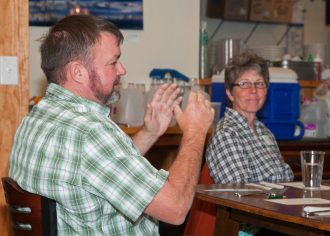 The third and final tasting event in the North Carolina Sea Grant Shark Sensory Evaluation has come and gone.,, Commercial Fisherman Dewey Hemilright was on hand to expand on Mirabilio’s presentation. Hemilright is an advocate for North Carolina commercial fishermen, a tireless educator and is active in Outer Banks Catch and the N. C. Coastal Federation and other related organizations. “These taste testing put on by Sea Grant, Sara and Cafe Lachine are most important in the future success in bringing cape shark to the consumer plates here in the U.S.,” said Hemilright. “Sara did an awesome job presenting. She gets it! This fishery is sustainable and is not overfished.” Read the rest here 09:23
The third and final tasting event in the North Carolina Sea Grant Shark Sensory Evaluation has come and gone.,, Commercial Fisherman Dewey Hemilright was on hand to expand on Mirabilio’s presentation. Hemilright is an advocate for North Carolina commercial fishermen, a tireless educator and is active in Outer Banks Catch and the N. C. Coastal Federation and other related organizations. “These taste testing put on by Sea Grant, Sara and Cafe Lachine are most important in the future success in bringing cape shark to the consumer plates here in the U.S.,” said Hemilright. “Sara did an awesome job presenting. She gets it! This fishery is sustainable and is not overfished.” Read the rest here 09:23
Commercial fishermen need our support
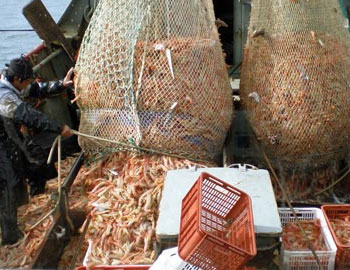 In Dulac and Golden Meadow, Chauvin and Pointesaux-Chenes, shrimpers are readying their vessels for a new season, hoping that nature and the markets will smile on their efforts, and provide not only a bountiful crop but prices that will support their livelihoods. Like the shrimpers, crabbers and oystermen have faced significant challenges, and all are working hard as always to keep afloat. The visible signs of their industry, located as they are in communities where many of us don’t spend time unless recreating, go unseen by most of us. But they are there, day in and day out. They know that their numbers have dwindled, that their infrastructure – the packing houses to which many sell their harvests – is dwindling as well. Read the op-ed here 08:44
In Dulac and Golden Meadow, Chauvin and Pointesaux-Chenes, shrimpers are readying their vessels for a new season, hoping that nature and the markets will smile on their efforts, and provide not only a bountiful crop but prices that will support their livelihoods. Like the shrimpers, crabbers and oystermen have faced significant challenges, and all are working hard as always to keep afloat. The visible signs of their industry, located as they are in communities where many of us don’t spend time unless recreating, go unseen by most of us. But they are there, day in and day out. They know that their numbers have dwindled, that their infrastructure – the packing houses to which many sell their harvests – is dwindling as well. Read the op-ed here 08:44

































